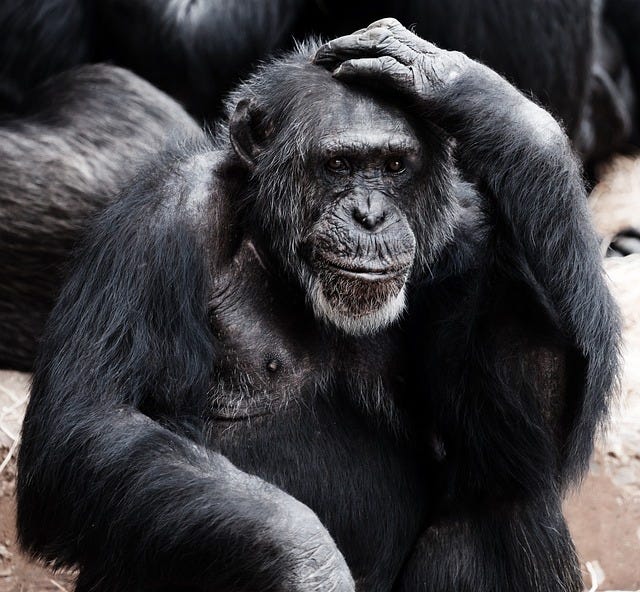A conversation about Evolution to Purpose, Part II
This week, I'm sharing a conversation with a former student reading my book
Super funny moment - there was a page I was reading that talked about how students are limited by what institutions tell them they can do, meanwhile as I was reading that I was like, ‘what the hell my parents did exactly this!’ I then got to the next page and was like, oh great he talks about this.
Yes. :) Many of the students who came to my office were (understandably) strongly influenced by their parents' expectations and desires. I grew up as the oldest son in a Korean family, so I get it. Schools are often the only environment where we can expand our thinking about this when we're growing up. Granted, the world of school is still pretty small when you're growing up, but one can at least learn first principles that eventually open one's eyes (e.g., self-reflection and critical thinking).
A couple of closing thoughts. What do you do when there's a massive chunk of people just coasting and doing the bare minimum across the world because they're not fueled by passion. Tell them to start figuring out their passion and switch jobs? I remember when I interned in corporate communications/affairs in pharma and every fibre of my body hated every second of it. I can't imagine people just going on like that...forever? Or maybe they can, because they get that strong sense of purpose from other parts of their life?
I have thought about this question a lot. If you look at job satisfaction data throughout the world, you really get the sense that the working world is an unhappy existence for so many people, in numbers that are impossible to truly comprehend. Some do find their purpose/satisfaction from something other than their work (e.g., family), and I think this is one way some deal with the situation. Many others find escapes (e.g., alcohol, video games) or socialize with others who feel equally miserable to cope. These can be thought of alternative ways to deal with an otherwise painful circumstance, although none of them directly solves the core issue.
I have no illusion that everyone out there who is miserable is ready to make a change, but I came to realize the problem is much worse than that--in many cases, we're not even giving people a fighting chance to do better. Our system is setting people up to fail at being happy at work, because we're either giving the wrong messages or teaching none of the lessons we should be. There are many who want to make a change, but don't even understand their predicament.
This leads to my other question, so why do you do this work after hours? All those students who really have no idea what they should do. I KNOW you've spent quite a bit of time helping them try to figure this stuff out. Is that what you think you've deemed your purpose?
It didn't start off as intentional, either for the first students who came to my office or me. It just turned out that their seemingly simple questions (e.g., should I do marketing or finance?) were impossible to answer well without having a much deeper conversation. And that's when I began to clearly see that we (educators) were failing to help students answer some of their most important life questions. I'm not an idealist by any means and I understand the dysfunction of bureaucracies well, but that really bothered me. It still bothers me. And yes, I think that gave me a purpose.
In the context of my academic day job, this kind of work is actually not valued, and is to some extent frowned upon because it's viewed as a distraction from other things universities would prefer faculty do. They will deny this of course, because it's embarrassing to admit that our universities don't really value faculty helping students to this degree, when students pay so much for their education. But it's true, and it's one of many things that's wrong with our system today.
And my last question, probably the toughest. And I'm trying to ask this without sounding like a suit... but...what can you do to scale trying to solve this problem?
This is a great question, one that has been nagging me for a while on my thinking "to do" list. I think the book is the right first step, and I need to do everything I can to make sure the book reaches the people that need it. The true, final answer to your question is that the education system itself needs to be reformed. Those of us within the system--teachers, counselors, principals, professors--need to think about education much more holistically. There are many who do this already as individuals, but they do this despite the system's failures, not because the system works so well.
As I said earlier though, I'm more a pragmatist than an idealist. Educational bureaucracies are mostly government bureaucracies, which only reform if they totally collapse or if there is powerful political will. Even now, I don’t think we're that close to either situation. So my next challenge to consider is what a program or course would look like that could scale well and yet still make enough impact. Change won't come from the system itself, so I have to create something outside it.
Closing thoughts
The day I finished the book and saw it on Amazon, I thought that my work was done. Now, I realize I’m just getting started, and hope that this conversation will be one of many more to come.





